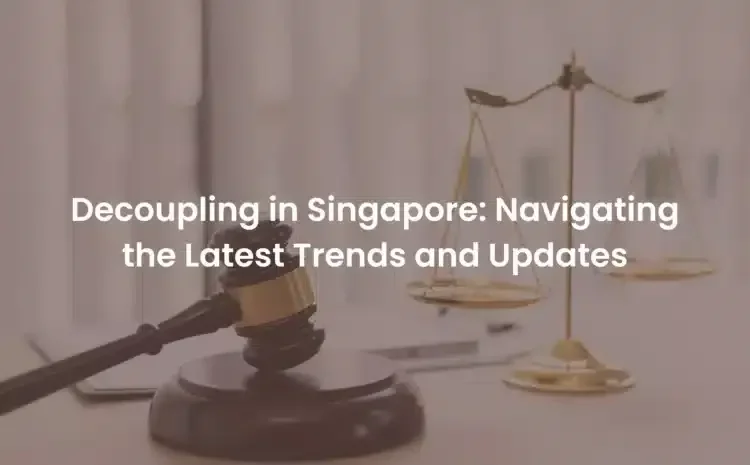Decoupling in Singapore: Navigating the Latest Trends and Updates
In the ever-evolving landscape of real estate in Singapore, one strategy that has gained significant attention is decoupling. This method, where one spouse transfers their share of a jointly owned property to the other, allows the freed-up spouse to purchase another property without incurring the Additional Buyer’s Stamp Duty (ABSD). Recent news and updates in the Singapore property market have brought new insights and implications for this strategy. Let’s delve into the latest developments and what they mean for homeowners and investors.
What is Decoupling?
Decoupling involves one co-owner of a property transferring their ownership stake to the other co-owner. This is typically done between married couples to leverage their individual buyer statuses and avoid hefty ABSD fees when purchasing a second property. For instance, if a couple jointly owns a home, one spouse can transfer their share to the other, enabling the former to buy a new property as a first-time buyer.
Recent Trends and Developments
1. Increased Popularity Amid Rising ABSD Rates
The ABSD rates in Singapore have seen several hikes in recent years, with the latest increase aimed at cooling the property market. As of 2023, the ABSD for second properties stands at 17% for Singapore citizens and 25% for permanent residents. These steep rates have made decoupling an attractive option for those looking to expand their property portfolio without incurring prohibitive costs.
2. Government Scrutiny and Regulatory Updates
With the rise in decoupling activities, there has been increased scrutiny from the authorities to ensure that this practice is not abused. The Inland Revenue Authority of Singapore (IRAS) has tightened its oversight to prevent any forms of tax evasion. This includes more rigorous checks on the genuineness of the transactions and ensuring that the transfers reflect fair market value.
3. Legal and Financial Considerations
Recent cases have highlighted the importance of understanding the legal and financial ramifications of decoupling. Legal fees, stamp duties on the transfer, and potential refinancing costs can add up. Furthermore, the spouse receiving the full ownership must be able to qualify for the mortgage on their own. Legal experts advise thorough consultation with property lawyers and financial planners to navigate these complexities effectively.
The Process of Decoupling
Valuation of Property: Obtain a professional valuation of the property to determine the market value of the share being transferred.
Agreement and Legal Documentation: Both parties must agree on the terms of the transfer. Legal documents, including the Deed of Transfer and Stamp Duty declarations, need to be prepared and signed.
Payment of Stamp Duty: The transferee must pay the Buyer’s Stamp Duty (BSD) on the market value of the share being transferred. This is a critical step and can be a significant cost factor.
Refinancing the Mortgage: If there is an existing mortgage, the spouse taking over full ownership must refinance the loan in their name. This requires approval from the bank or financial institution.
Registration with Land Titles Registry: Finally, the transfer must be registered with the Singapore Land Authority (SLA) to complete the process.
Benefits and Risks
Benefits:
Cost Savings: Avoidance of ABSD on the purchase of a second property can result in substantial savings.
Portfolio Expansion: Enables the freed-up spouse to purchase another property, facilitating investment and portfolio diversification.
Estate Planning: Decoupling can also serve as an estate planning tool, allowing for smoother transfer of assets.
Risks:
Financial Strain: The spouse taking over the property must bear the full financial responsibility, including mortgage payments.
Market Volatility: Property values can fluctuate, affecting the financial viability of the strategy.
Regulatory Changes: Future changes in property laws or tax regulations could impact the benefits of decoupling.
Conclusion
Decoupling remains a viable and strategic option for Singaporean property owners looking to navigate the high ABSD rates and expand their real estate portfolio. However, it requires careful planning, a thorough understanding of the legal and financial implications, and staying abreast of the latest regulatory updates. By consulting with legal and financial experts, homeowners can make informed decisions and effectively leverage this strategy to their advantage.
As the Singapore property market continues to evolve, keeping an eye on the latest news and trends is crucial for anyone considering decoupling. This proactive approach will ensure that you make the most of the opportunities while mitigating potential risks.

